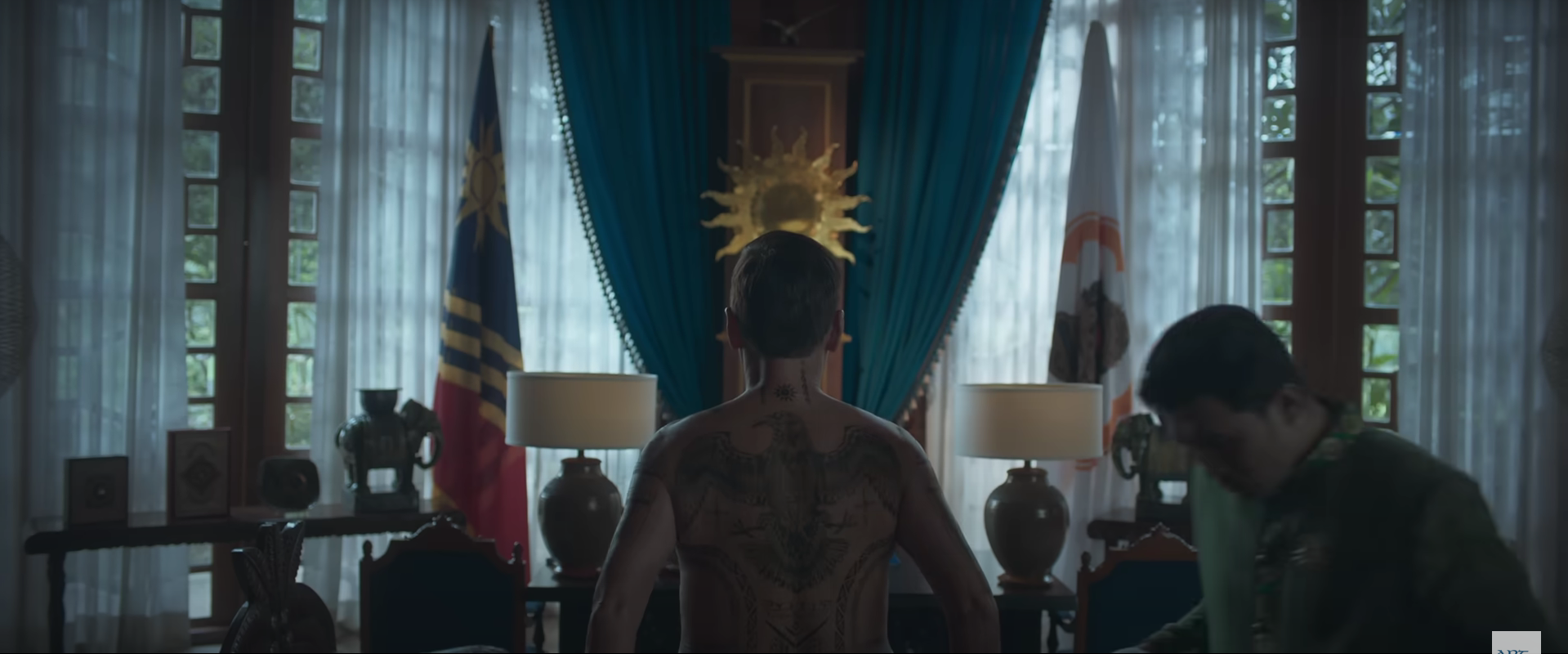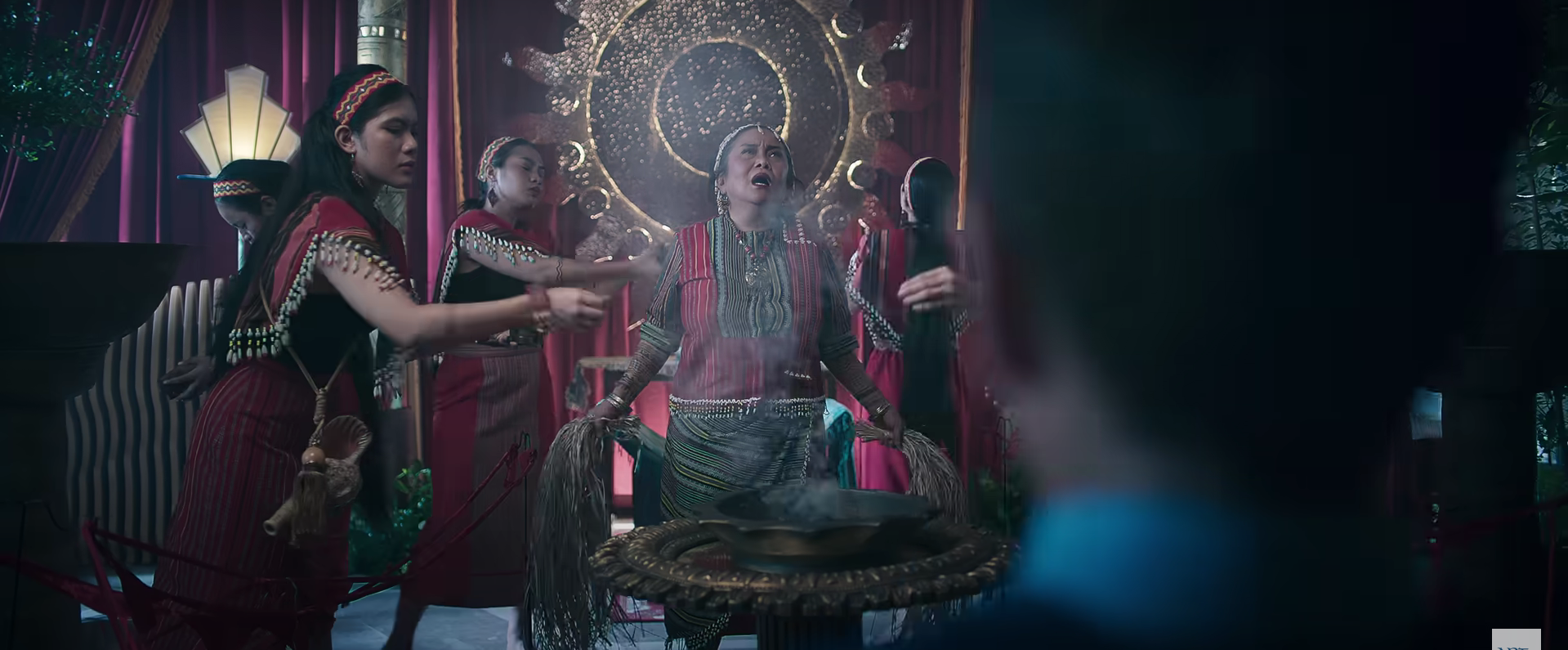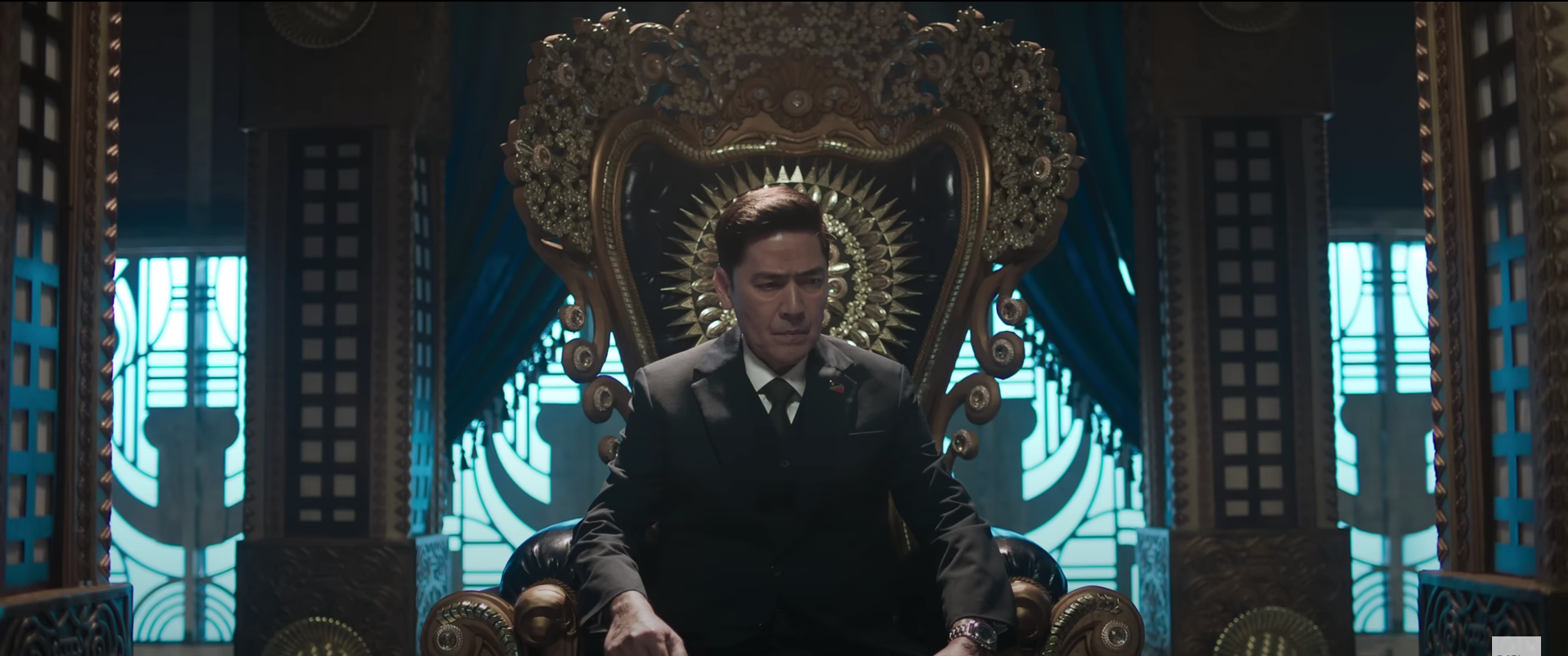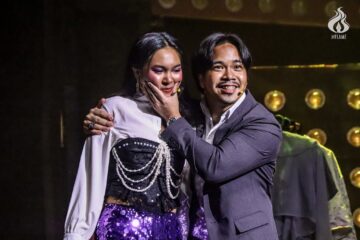A STAR-STUDDED cast’s rich characterization, coupled with an extravagant display of the country’s precolonial traditions, might have helped The Kingdom to emerge as the second best film in the 50th Metro Manila Film Festival (MMFF).
However, its incorporation of rich precolonial traditions could be nothing but a front to create an air of authenticity that attempts to hide its reliance on generic tropes. The Kingdom presents itself with an intriguing concept of an unconquered Philippines, but its ambition falls short.
Directed by Michael Tuviera, The Kingdom is an ambitious and highly creative film that premiered on Dec. 25 as part of the lineup for the golden year of the MMFF. Drawing inspiration from present-day turmoil, the opening scene features a rift between fishermen and coast guards, setting the tone for the narrative and immersing them in its envisioned direction.
It presents a reimagined Philippines, referred to in the film as the unconquered and sovereign Kingdom of Kalayaan that strictly imposes the law of retribution; “mata sa mata, ngipin sa ngipin” (an eye for an eye, a tooth for a tooth). It aims not to restore the victim but to make criminals grasp the gravity of their actions.
The story incorporates elements of precolonial Filipino culture, such as titles like Magat (prince) and Dayang (princess) and the ancient lore of the Bakunawa, weaving these influences into an alternate world. This approach allows audiences to envision the rich potential of Filipino culture, language and beliefs brought vividly to life on screen.

The film opened with the introduction of Lakan Makisig Nandula (Vic Sotto), a regal figure adorned with striking, symbolic tattoos embodying the role as the Kingdom of Kalayaan’s ruler.
The film then established the royal family: Magat Bagwis Nandula (Sid Lucero), the hot-headed and iron-fisted firstborn son, Dayang Matimyas Nandula (Christine Reyes), the highly intelligent and strategic second-born daughter who is deeply vulnerable in matters of love, a characteristic evident in her child Felipe (Zion Cruz), and lastly, Dayang Lualhati Nandula (Sue Ramirez), the one with a big heart, and the King’s most beloved. Together, these characters weave a tale of power, loyalty and familial conflicts.
While the film’s creativity is commendable, it suffers from several plot holes. There is no singular antagonist in the story as characters simply sought the King’s approval. The film’s inefficient use of its time affected key moments like the abduction of Dayang, which was pivotal to the narration but still felt lacking.
The struggle for power is an evident theme in the film, with characters driven by greed and entitlement to the crown. Dayang’s character left the audience wanting more depth as she fell short due to her weak and poorly developed characterization.
One subtle yet intriguing detail occurs during a dinner scene with Lakan Makisig, where she refrains from eating with her hands—a traditional Filipino practice called kamayan. This cultural gesture, deeply rooted in Filipino heritage, symbolizes connection and communal bonding, but instead, Dayang Matimyas deliberately uses silverware, eating slowly and methodically. This body language hinted at a calculated, cunning nature that suggested deeper machinations.
However, these hints never fully materialize in her character. The lack of follow-through resulted in an unclear antagonist for the story and missed an opportunity to give the narrative a stronger and more satisfying conflict. While the use of precolonial narratives added flavor, it ultimately felt superficial, as the scenarios presented lacked any novelty.

Sulo (Piolo Pascual) stood out as a memorable character. He embodied the plight of the oppressed citizens in a society governed by the harsh belief system of the Kingdom of Kalayaan.
Because of his father’s past mistakes, Sulo is condemned to the inherited status of tinatwa (outcast), marked by his lack of tattoos, a symbol of his unworthiness. His poignant line, “Mahirap makita ang katotohanan mula sa itaas” (It’s hard to see the truth from above) reflects Sulo’s plea to the sovereign for equal respect and opportunities, as the Kingdom of Kalayaan’s practice of passing blame across generations traps its people in perpetual misery and hopelessness.
While the royal family provided intrigue, a focus on Sulo’s perspective as a commoner in an uncolonized, monarchical Philippines could have been a more compelling angle to explore.
The brief and underwhelming portrayal of the lower class failed to make the world feel authentic, and any attempt to highlight it is quickly dismissed, leaving the film less convincing.
Many character arcs are underdeveloped despite the immense potential they carry. The story felt rushed, and this highly creative concept might work better in a longer episodic format, such as a teleserye, to fully explore its rich narrative and themes.
The musical score and script stood out as exceptional elements, adding depth and authenticity to the film. The sound design was immersive and distinct, which perfectly aligned with the film’s vision.
The dialogue was thoughtfully crafted, avoiding any awkwardness in its use of the Filipino language. Notable lines, such as “Ang bigat ng ginto sa ulo ko ang nagpagyuko sa akin sa batas” (The weight of gold on my head forced me to bow before the law) and “Wala sa tinta ng katawan ang pinta ng puso” (The ink of the body does not reflect the ink of the heart) from Lakan Makisig Nandula and “Pagkakaisa ay paniniwala—paraan lamang ito para may makaisa” (Unity is a belief—a way for someone to take advantage) from Sulo showcased the care put into the script.

The incorporation of Filipino textiles in clothing, a fictional concept of Bathala’s batas ng tugmaan, a practice followed in the Kingdom where anyone summoned must fight to death to prove his worth, and the Babaylans’ belief that they are the sons of Bathala were some of the film’s creative additions taken from the Philippines’ precolonial culture.
Overall, the film vividly emphasizes the uniqueness of the Philippine’s cultural heritage. The set design and costumes were masterfully executed, bringing the fantastical world to life and fueling the audience’s imagination.
The Kingdom ultimately anchored its narrative on a family steeped in sorrow and revenge. They are just like any other family; it just so happened that they were a Lakan and Lakambini with much power to impose the law of retribution. The Kingdom of Kalayaan merely reimagines a dream, a repertoire that could exist as either the best or the worst in another world.

Despite its tendency to feel like a repackaged teleserye, The Kingdom still succeeds in reminding spectators that clinging to outdated practices stifles progress. Without a contemporary perspective that respects Filipino roots, justice remains out of reach, regardless of social standing. F



